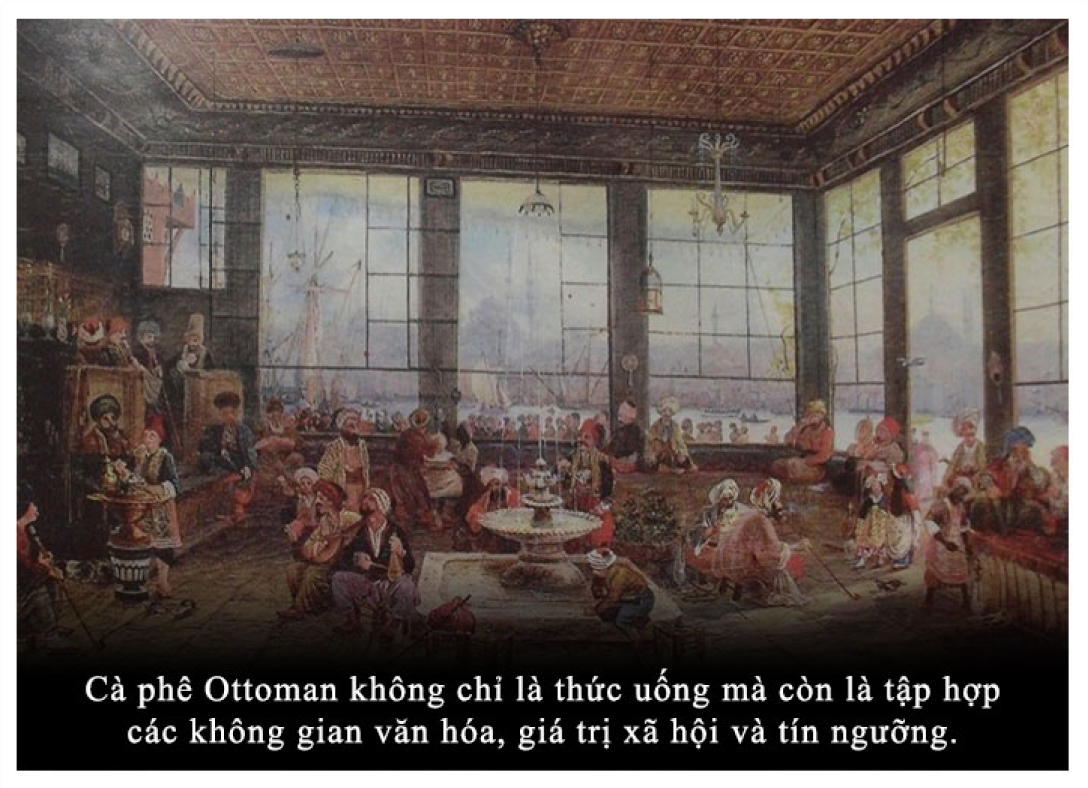Ottoman coffee civilization is the coffee civilization of the Islamic world, where coffee is considered a divine drink, stimulating creativity
The coffee plant was first discovered in Ethiopia (Northeast Africa) around the 9th century. This is one of the most ancient kingdoms, with a unique multi-ethnic culture. When coffee was discovered, local people used coffee leaves and beans to make simple food and drinks. According to folk legend, coffee is considered to be God's tears dripping onto the bodies of shamans. The Oromo tribe today still maintains the custom of planting a coffee tree on the graves of shamans.

The earliest coffee lovers were Muslims and coffee followed them everywhere to many countries and territories of the Middle East. Along with the growth of the Ottoman kingdom from the 10th to the 16th century, the Ottoman coffee civilization was formed, representing the Islamic world, where coffee was considered a divine, stimulating creativity.
In the 16th century, the first coffee shop in Istanbul was born. From here, coffee opened up a new field of economic activity and changed Ottoman social life. Coffee shops were not just places to enjoy coffee but functioned as cultural spaces. People from different ethnicities, classes, and professions played chess, read news, discussed social issues, and looked for business opportunities. Writers, poets, and folk artists came to display their works of art and poetry.